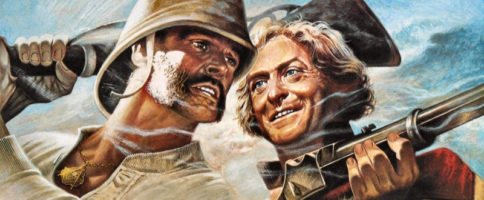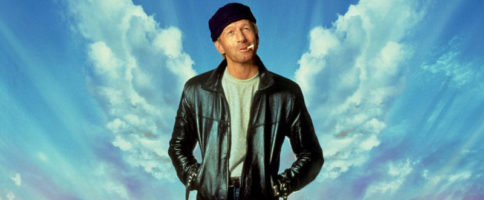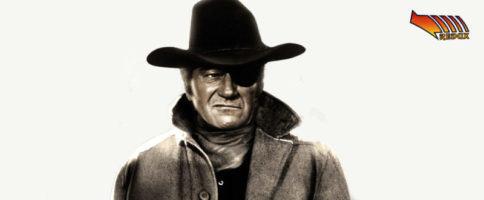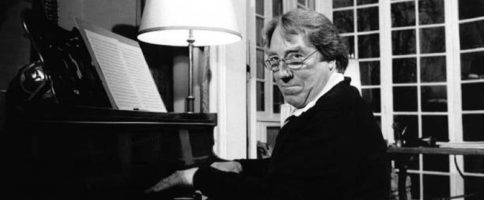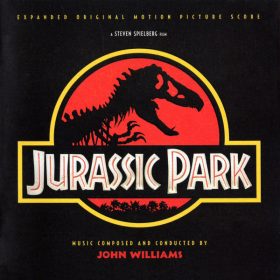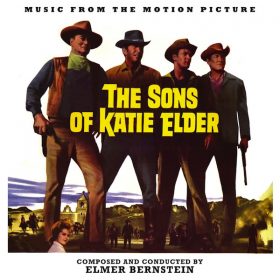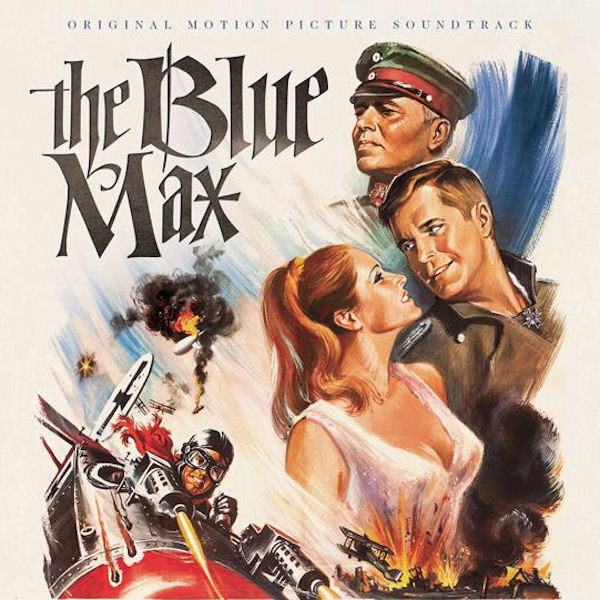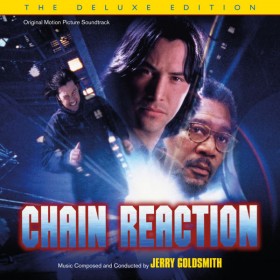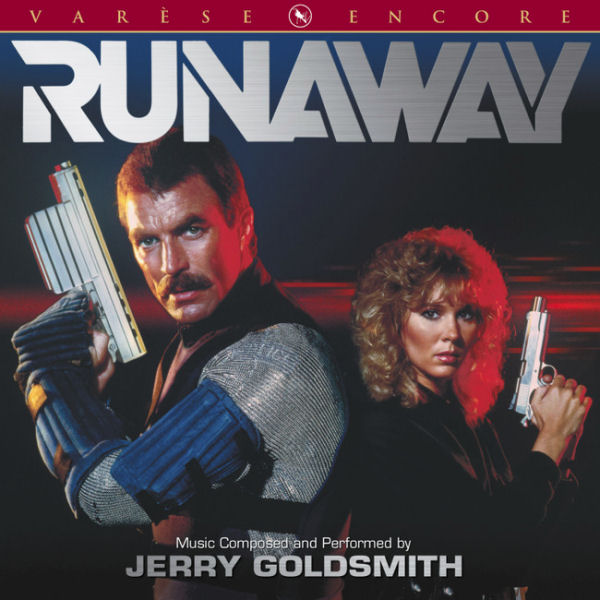How did you get involved with Varèse Sarabande?
The beginning of my collaboration, which is what it was initially with Varèse Sarabande, was when I started on my own record label, called Masters Film Music, in Canada. I was looking for a distribution company that could handle exposure of the label I had created and help take albums that I would produce and bring them to the market. So it was initially a distribution deal that started my company working with Varèse Sarabande. But then, after a few albums that we did that way, from 1986 to the spring of 1989, I took over all production of Varèse Sarabande and set along the path that is continued to this day, where I produced rarely fewer than 50 albums a year and as many as 72 or 73 albums for a couple of the more recent years, which is truly overwhelming! (laughs)
On which criteria do you choose the scores that you are going to release?
I suppose the word I would have to mention, that really guides me more than anything, is relationships. That’s where all begins. I have relationships with composers, with film studios, so one way or the other, that’s where all the projects begin. It’s knowing composers and having them invite me to be part of the new score they’re working on, or a studio calling me up and telling me that they’ve got a new composer, they’re going to assign him to a film, and then I work with them on the album. But at this stage, after doing this as long as I have, that also becomes the difficult thing to keep up with, because the number of relationships I have now is occasionally overwhelming. And I know people I really can’t say no to, because there is so much history behind us! For example, if Joel McNeely called with a new film, or John Debney, I would never say no. But when too many of those things all happen at the same time, the result can be that I just don’t sleep for a very long time! Because you can only fit so much into a day, even though I know how to streamline the whole process and expedite so much of it, with the amount of experience I have now, but at the same time it still has to get done, there is not a way of shortening the process. A 24 hour day, more often than not, is not a long enough day for me.
When you decide to release a score album, how do the composers react?
More often than not, they’re very excited because it’s so important for the composers to be able to expose their music to an audience, amongst fans, but they also have this disc to pass around within the industry. Sure, the composers can burn a copy of the score on their computer and pass around a disc that way, but it doesn’t come with the credential of being able to say: « Look, I’ve just had my score released on Varèse Sarabande ». I’m always very happy and very proud when I hear from composers that because of an album that we did together, it ends up leading to another job on another picture they get and we can work with them on that picture as well. The whole album process really does play a role in the careers of these guys, and so many things can come of that that they would never even guess because we do all the work in Los Angeles or wherever they do the recording, and then these discs go out around the world and then live lives of their own. In some ways, it’s like fishing all over the world, you never know when someone is going to be caught by one of these, and suddenly, a director hears the score from a movie he has never seen, if he hears the soundtrack, or maybe his musical editor has taken a recording from a soundtrack and put it in a temp track into a film, maybe he hears it that way, already in the context of hearing it in his film, and even if he knows it’s transplanted from an another film, he says : « Can I get that guy ? » It’s a very fluid process in that regard.
Does it happen sometimes that a composer tells you that he doesn’t want his score to be released?
There was a case, I don’t even remember his name, Brian something (laughs), I think it was a Sony film and it was only a few years ago, and for some reasons, he was very focused on there being a vinyl release of his score. He didn’t care about the CD, he wanted a vinyl release, and the whole project was cancelled because he just wouldn’t let go of the idea of a vinyl release. Over the years; there has been one or two other occasions that were just a little abstract and weird, but it’s difficult to remember amongst all the projects that actually happen and make it to the finish line. It’s difficult to remember the ones that didn’t happen. They are out of sight, out of mind.
Did you already release a score to please the composer, when you choose at first to pass?
It doesn’t happen often but it has happened on occasion and it happened on one particular occasion very famously. I turned down the movie Ghost six or seven times before Maurice Jarre finally talked me into being part of that project and so finally I said yes as a favor. When I saw the film, they had set up a screening for me at Paramount and I didn’t really like the film too much, to be honest. I certainly like very much the main theme Unchained Melody by Alex North, my favorite film composer in so many ways, but as the same time there was another film that opened around the same time which was a comedy from Universal called Ghost Dad with Bill Cosby. I just wasn’t very excited about being involved in the film, but finally I agreed. When people say: « You release so many albums, so why don’t you try to release somewhat fewer? », if I had released one fewer album that year, the one fewer would have been Ghost, which ultimately became our biggest selling album ever. So I’m certainly very grateful that Maurice kept on top of me, encouraging me to take part and at the same time I’m so grateful for Alex North. I had the opportunity of presenting Alex North with a Platinum Sells Award for the Ghost album and also to see him be in the position of number 8 on the Billboard Magazine Pop Charts when he was 80 years old. So at the end I’m so glad I was convinced otherwise. There have been a couple of others but that’s really the main one.
When you don’t release the complete score, how do you select the cues that will be on the disc?
There are two main ways of doing that. It’s almost always the composer and myself working directly. Either I do the first pass and make a selection of cues and submit it to them for input, or they do the first pass and make a selection of cues and submit it to me for input and then, depending on who goes first, the other goes second, and we make revisions and then we go on to a mastering studio and put the album together. That’s the creative process, all the albums are almost always created that way. Sometimes there can be significant changes from the first pass or sometimes it can just go almost intact after myself and the composer have prepared it. There are certain projects that I make a point of being even more involved in, like Michael Giacchino’s Lost albums for example. It’s an enormous amount of work but it’s always so fun to revisit every episode when it’s time to put up the album together. I go through every episode of the season, I watch the episode, and select the cues. It’s very difficult for the TV albums because you have so much music. It’s an extraordinary long process of having to call from hours of music and come up with a selection of maybe just one hour and a few minutes of music.
Were there some aborted projects that you felt really disappointed not getting them released?
Over the years, there have been many things that we wanted to do and ended up not working up for some reasons. It’s hard to specify them or remember in retrospect, but sometimes it’s not rights related as well. We would do a deal with the studio for the release of a score and then realize that they don’t have any tapes, and if the composer doesn’t have any master tapes in their archives, then it becomes a lost score because it hasn’t survived the years. That happens more frequently than you may imagine, your heart would break if you knew some of the things that I was working on and attempted to release and ultimately have not been able to. When it’s lost, there is no resolution to that. If you have no tape, you have no tape. Every composer has something in that regard. For example, Dave Grusin’s score of a movie called My Bodyguard: it’s a lovely picture, a little score, not a lot of music but really wonderful, charming. I would love to release that score, but they can’t find the tapes at Fox and Dave Grusin hasn’t anything in his own archives. So until there’s some wondrous discovery where someone moves a box aside and realize: « There is My Bodyguard! », this score will never be released. There are so many that fall into that category: Jerry Goldsmith scores, Elmer Bernstein scores, Alex North scores and Georges Delerue scores… All the composers we would love more releases from. Some releases won’t happen because the tapes haven’t survived.
Which unreleased scores would you really like to produce?
Once upon a time, I could have answered that question. These days the list is getting very short and it’s short : one, because I’ve released so many of them and two, it’s getting shorter because I’m going to release so many of them (laughs) and so I actually can’t answer that question anymore because the answer is : it’s going to be taken care of! (laughs)









